The Beauty and the Beast Effect in YA Literature
 Like a lot of book lovers, Beauty and the Beast was my favorite Disney movie. It seemed like such a no-brainer. Here was a girl who loved books and read-she even sang about it! Then later, she discovers a glorious library that we could all covet. With no hesitation I would tell you that Belle is my favorite Disney princess!
Like a lot of book lovers, Beauty and the Beast was my favorite Disney movie. It seemed like such a no-brainer. Here was a girl who loved books and read-she even sang about it! Then later, she discovers a glorious library that we could all covet. With no hesitation I would tell you that Belle is my favorite Disney princess!
But my thoughts on this all changed one long family car trip from Texas to Ohio. Armed to the teeth with media to keep my kids, then 10 and 4, placated, I downloaded Beauty and the Beast onto our iPad for their backseat viewing. But something interesting happened on that trip as I listened – really listened – to the dialogue and didn’t have the pretty pictures to distract me. Oh my gosh, I thought! He has kidnapped her to try and force her to fall in love with him. Technically, he kidnapped her father then traded his imprisonment for hers. And we, the audience, are supposed to think that this is a good idea. It’s okay because underneath it all he is really a nice prince who has learned a valuable lesson about being kind and unselfish. Belle’s love, you see, changes him. We’re supposed to swoon and ignore the fact that she was not there because she wanted to be, she was there because he was holding her prisoner.
ADVERTISEMENT
ADVERTISEMENT
Later that night, when my kids had gone to sleep, I deleted the movie off of my iPad. I later had a conversation with my then pre-teen daughter. Whatever happens in life, I told her, know that you should never fall in love with a man who is willing to hold you hostage; that is abusive; that is domestic violence. Also know that if a man is not a good guy when you meet him, your love is probably not going to change him into a good guy.
Then in these past few months I read not one, not two, not three but four books in which the main female character in a YA novel fell in love (or will maybe fall in love) with a guy who kidnaps her in some form or another. If you follow me on Twitter (@tlt16) you know that I went on lots of mini-rants about this phenomenon.
The truth is, I liked most of the books. One of them I liked so much I asked The Mr. to read it. You can like problematic things, but I was immensely torn on these titles because of The Beauty and the Beast Effect.
So here is your warning: SPOILER ALERT. I AM GOING TO DISCUSS FOUR BOOKS AND BECAUSE YOU KNOW I AM TALKING ABOUT THE BEAUTY AND THE BEAST EFFECT IN YA LITERATURE YOU KNOW THAT I WILL BE REVEALING SOME KEY PLOT POINTS. READ ON AT YOUR OWN RISK.
In Stitching Snow by R. C. Lewis, we are introduced to a kick-ass female who is surviving on a hostile planet – both in terms of 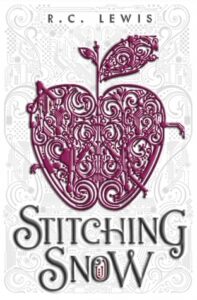 environment and being surrounded by rough male characters. She makes extra money by fighting in MMA-type matches and winning. She also has strong tech skills, something which she is frequently sought out for. Basically, she is pretty freaking awesome. But then a guy shows up, knocks her out, kidnaps her, and transports her against her will across the galaxy. During this, they kind of sort of start to fall in love. I liked everything about this book except for that. Well, there was one other part that kind of bothered me. You see, Snow has already been established as a strong female character and a skilled fighter. She has fought and won against a ton of men on her home planet. But of course as she enters into possible battle this guy comes along and has to train her to be a better fighter. I can understand that realistically she might need to learn some more precision fighting skills. I just thought it was unfortunate that this previously established strong female fighter was undermined by having her taught how to fight – by of course a man. A man that is holding her hostage as a negotiation tool against a warring planet. I liked the character of Snow, I liked the vast space exploring epic science fiction saga of it all, I just hated the way the male lead chose to execute his plan by literally knocking Snow out, abducting her, and then the reader being left with the expectation that they should accept this budding love story.
environment and being surrounded by rough male characters. She makes extra money by fighting in MMA-type matches and winning. She also has strong tech skills, something which she is frequently sought out for. Basically, she is pretty freaking awesome. But then a guy shows up, knocks her out, kidnaps her, and transports her against her will across the galaxy. During this, they kind of sort of start to fall in love. I liked everything about this book except for that. Well, there was one other part that kind of bothered me. You see, Snow has already been established as a strong female character and a skilled fighter. She has fought and won against a ton of men on her home planet. But of course as she enters into possible battle this guy comes along and has to train her to be a better fighter. I can understand that realistically she might need to learn some more precision fighting skills. I just thought it was unfortunate that this previously established strong female fighter was undermined by having her taught how to fight – by of course a man. A man that is holding her hostage as a negotiation tool against a warring planet. I liked the character of Snow, I liked the vast space exploring epic science fiction saga of it all, I just hated the way the male lead chose to execute his plan by literally knocking Snow out, abducting her, and then the reader being left with the expectation that they should accept this budding love story.
In Black Ice by Becca Fitzpatrick, our main character is stuck in a snow storm in the mountains and she is being held captive by two men who are forcing her to help them get back to safety. They want to use her and her knowledge of the area to help them navigate the snowstorm. One or both of them are possibly serial killers. I’m sure you can guess what happens. This could have been an engaging thriller had we not been asked to accept that this girl would literally pine for a boy who not only held her against her will but possibly left her best friend for dead at one point in the story. I literally want to rip the last couple of chapters out of this book, which would make it an entirely different and more palatable story from a girl power point of view.
In Falls the Shadow by Stefanie Gaither, a young woman is misled by a male “friend” and taken to a group that holds her hostage because they want information from her. And because there is a theme happening here, you can guess what happens next.
ADVERTISEMENT
ADVERTISEMENT
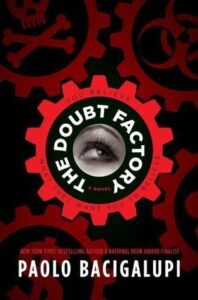 In The Doubt Factory by Paolo Bacigulupi, a girl is literally held captive in a cage by a group of activists led by the male lead until she agrees to do what they ask her to do. Later, as she begins to realize that they were telling her the truth and that she wants to be on their side . . . well, again, I am sure you can guess what happens. It is this book that I found so compelling and thoughtful in its commentary on the media and publicity machines of our world that I asked The Mr. to read. The thing is, I think it is an entertaining thriller that asks teens really profound and important questions about topics that haven’t been covered a lot in YA literature: how we are marketed to, how people with money influence the information we have and put profits over people, and how government often fails to protect the very people that they are elected to serve. It is for me, as a woman and a mother, so unfortunate that the important thoughts expressed within this narrative are marred by the falling in love with your captor trope. This is thematically one of the most important and thoughtful books I have read this year, but it’s hard for me to get past The Beauty and the Beast effect here. I can’t buy into the second part of the book and this love story because I know it began with this boy putting her in a cage. That is not romantic, it is abusive. And to suggest that it is something that you can forgive or look past and go on to develop a romantic relationship is highly problematic. It’s not the type of messaging we should be sending to our boys or our girls.
In The Doubt Factory by Paolo Bacigulupi, a girl is literally held captive in a cage by a group of activists led by the male lead until she agrees to do what they ask her to do. Later, as she begins to realize that they were telling her the truth and that she wants to be on their side . . . well, again, I am sure you can guess what happens. It is this book that I found so compelling and thoughtful in its commentary on the media and publicity machines of our world that I asked The Mr. to read. The thing is, I think it is an entertaining thriller that asks teens really profound and important questions about topics that haven’t been covered a lot in YA literature: how we are marketed to, how people with money influence the information we have and put profits over people, and how government often fails to protect the very people that they are elected to serve. It is for me, as a woman and a mother, so unfortunate that the important thoughts expressed within this narrative are marred by the falling in love with your captor trope. This is thematically one of the most important and thoughtful books I have read this year, but it’s hard for me to get past The Beauty and the Beast effect here. I can’t buy into the second part of the book and this love story because I know it began with this boy putting her in a cage. That is not romantic, it is abusive. And to suggest that it is something that you can forgive or look past and go on to develop a romantic relationship is highly problematic. It’s not the type of messaging we should be sending to our boys or our girls.
The thing is, in each of these books the guys don’t necessarily seem like typical bad guys. They are often, in fact, guys fighting good causes or seeking worthwhile goals, they just choose to do so by taking away the female’s agency and literally holding her captive – which makes them bad guys by default. Even if their intentions are good, they are bad guys because they engage in abusive/violent behavior that doesn’t recognize the agency of the female characters. They kidnap, manipulate, lie, and coerce in order to achieve their goals. The girl begins as a pawn and then we are asked as readers to overlook all of this and accept their budding love stories. We, as readers, are expected to swoon.
In at least two of the narratives the authors at least have the characters acknowledge the existence of Stockholm Syndrome and question their motives for being attracted to the guy. But that possibility is quickly dismissed.
In a single story I might be more willing to overlook this troubling trope, but reading so many instances in such a short time period really made me question how we were portraying our girls in YA fiction and what we are saying to them, at least subliminally, about relationships. So while an author might argue that it isn’t their job to teach or write in a way that transforms young minds, we must also be honest with ourselves and admit that part of the reason we embrace literature and things like We Need Diverse Books is because we do in fact believe that part of how we view ourselves and the world around us is informed in part by the literature we read. We spend a great amount of time and verbiage extolling the power of reading to open minds and create empathy, which means that we believe that literature can influence our thinking. So I would like to see less books that suggest we as women should overlook the fact that a guy is willing to completely undermine a girl’s personal agency and find them in any way desirable. In my opinion, being kidnapped by another person is such a horrific offense that it should be a deal breaker. Subverting a person’s free will and personal autonomy, controlling them, manipulating them, coercion – these are all abusive practices, not romantic in any way. We need to find better ways to tell our stories that re-enforce the idea that female agency is important.
Filed under: Gender issues, Girls, Teen Issues, Uncategorized
About Karen Jensen, MLS
Karen Jensen has been a Teen Services Librarian for almost 30 years. She created TLT in 2011 and is the co-editor of The Whole Library Handbook: Teen Services with Heather Booth (ALA Editions, 2014).
ADVERTISEMENT
ADVERTISEMENT
SLJ Blog Network
One Star Review, Guess Who? (#202)
This Q&A is Going Exactly As Planned: A Talk with Tao Nyeu About Her Latest Book
Exclusive: Giant Magical Otters Invade New Hex Vet Graphic Novel | News
Parsing Religion in Public Schools
ADVERTISEMENT




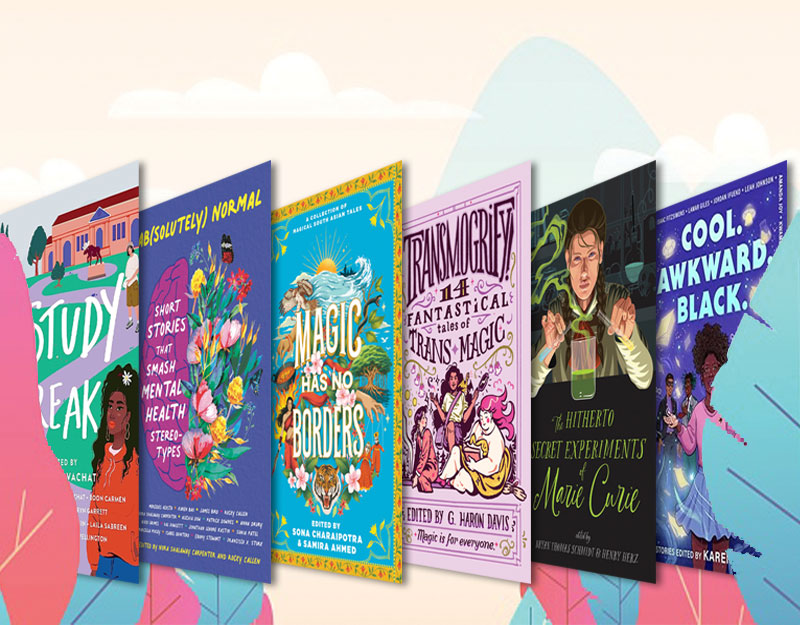
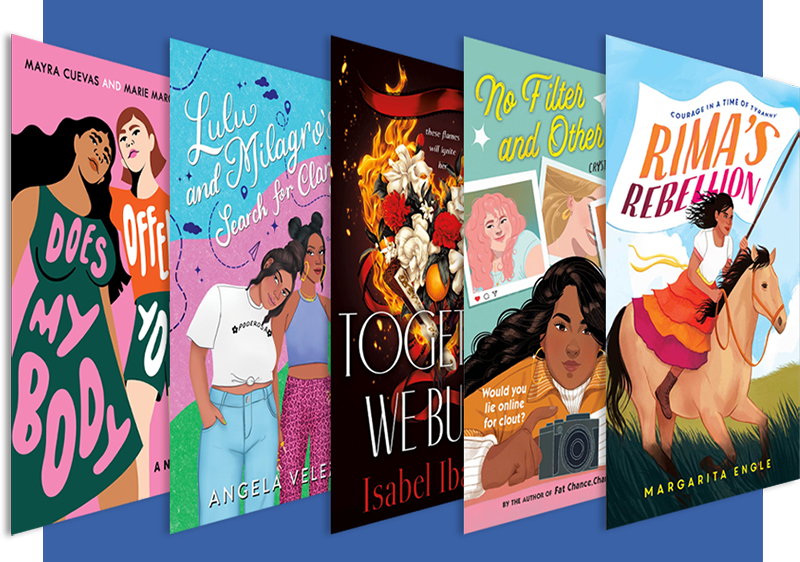
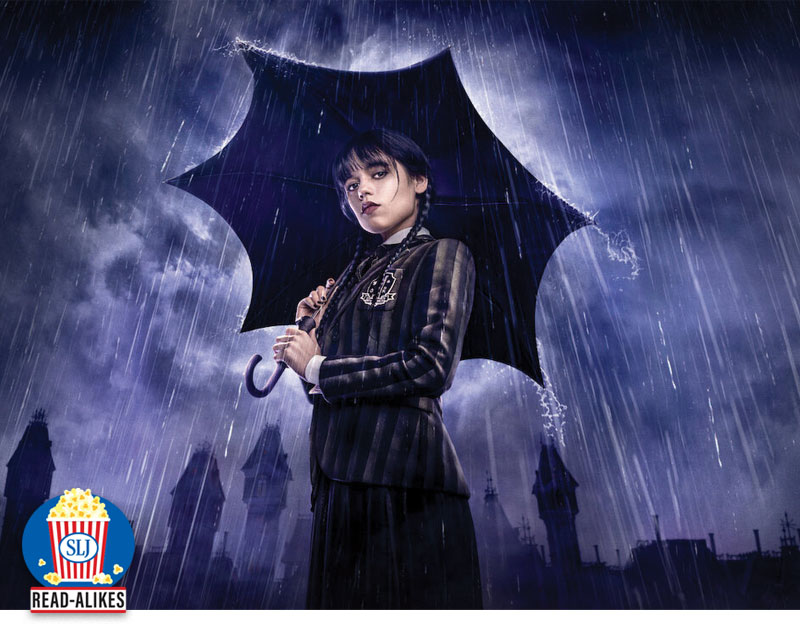
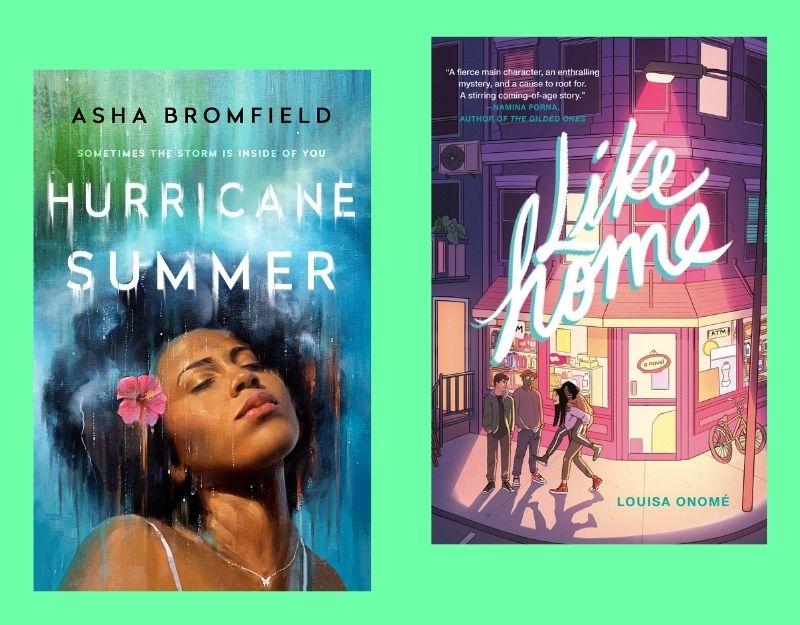
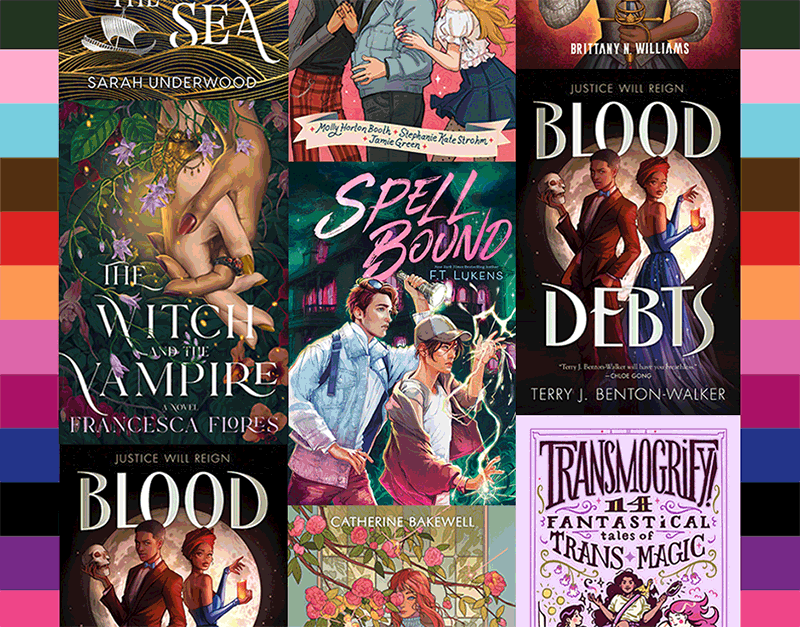
From Twitter: Via the boyBFF: There comes a time in every man’s life when he kidnaps the woman who would become his wife #CriminalMindsLogic
The original story by Jeanne-Marie Leprince de Beaumont has nothing about Beauty taming the Beast. The Beast does threaten Beauty’s father, but he is never, ever unkind to Beauty. He is just deformed and a bit stupid. Beauty’s situation, in that her father has lost his fortune and she is traded to this man, is not totally unlike an arranged marriage.
Beauty also has two sisters who marry unwisely: “The eldest had married a gentleman, extremely handsome indeed, but so fond of his own person, that he was full of nothing but his own dear self, and neglected his wife. The second had married a man of wit, but he only made use of it to plague and torment everybody, and his wife most of all.”
When Beauty sees that the Beast is dying, she remonstrates with herself: ‘ “Am I not very wicked,” said she, “to act so unkindly to Beast, that has studied so much, to please me in everything? Is it his fault if he is so ugly, and has so little sense? He is kind and good, and that is sufficient. Why did I refuse to marry him? I should be happier with the monster than my sisters are with their husbands; it is neither wit, nor a fine person, in a husband, that makes a woman happy, but virtue, sweetness of temper, and complaisance, and Beast has all these valuable qualifications. It is true, I do not feel the tenderness of affection for him, but I find I have the highest gratitude, esteem, and friendship; I will not make him miserable, were I to be so ungrateful I should never forgive myself.”‘
Given that at the time Jeanne-Marie Leprince de Beaumont wrote this story divorce was not possible, I have always seen this as advice to young women, should they be fortunate enough to have a say in their choice of husbands. Kindness is more important and will make you happier in the long run. It’s a pity that today her tale has been so twisted.
Source: http://www.pitt.edu/~dash/beauty.html
I must be honest and admit that I am not familiar with the non-Disney version of the story, so I appreciate this information. I’m going to read more at the link you posted. Thank you 🙂
Karen
I get you here. The only story which may have done it well was The Blue Sword by Robin McKinley. The summary on Amazon doesn’t do it justice, because though the main character is kidnapped, the man who does it doesn’t know why- his magic literally compels him to do it. It tears him apart because as a king he has to act like he’s confident about what he’s done, but he feels horrible about it. When falls in love with her, he refuses to act on it because he knows his actions have made him unworthy of her. It’s the only time I can go with this storyline.
It’s been a while since I read The Blue Sword, which I remember really liking, so now I might have to re-read it and pay attention to this.
Thanks for this comment Erin, it’s something that I hadn’t remembered.
Karen
Well said. I find most of Becca Fitzpatrick’s work, by and large, deeply troubling. Patch, the Hush, Hush trilogy’s male “romantic lead,” is guilty of stalking, emotional abuse, and other teen dating violence behaviors. :/
It’s as though, culturally, we’ve been programmed to think that these violent behaviors are romantic. Ugh. 1000 x ugh.
Have you seen “Advice for Young Girls?” on YouTube? It hits many of the points you’re talking about: https://www.youtube.com/watch?v=Uuk-h2ZYNJU&spfreload=10
Megan,
I have not seen this but I’m going to check it out. Thanks for the recommendation and the comment.
Karen
Awesome post.
I love this! Really great taste!